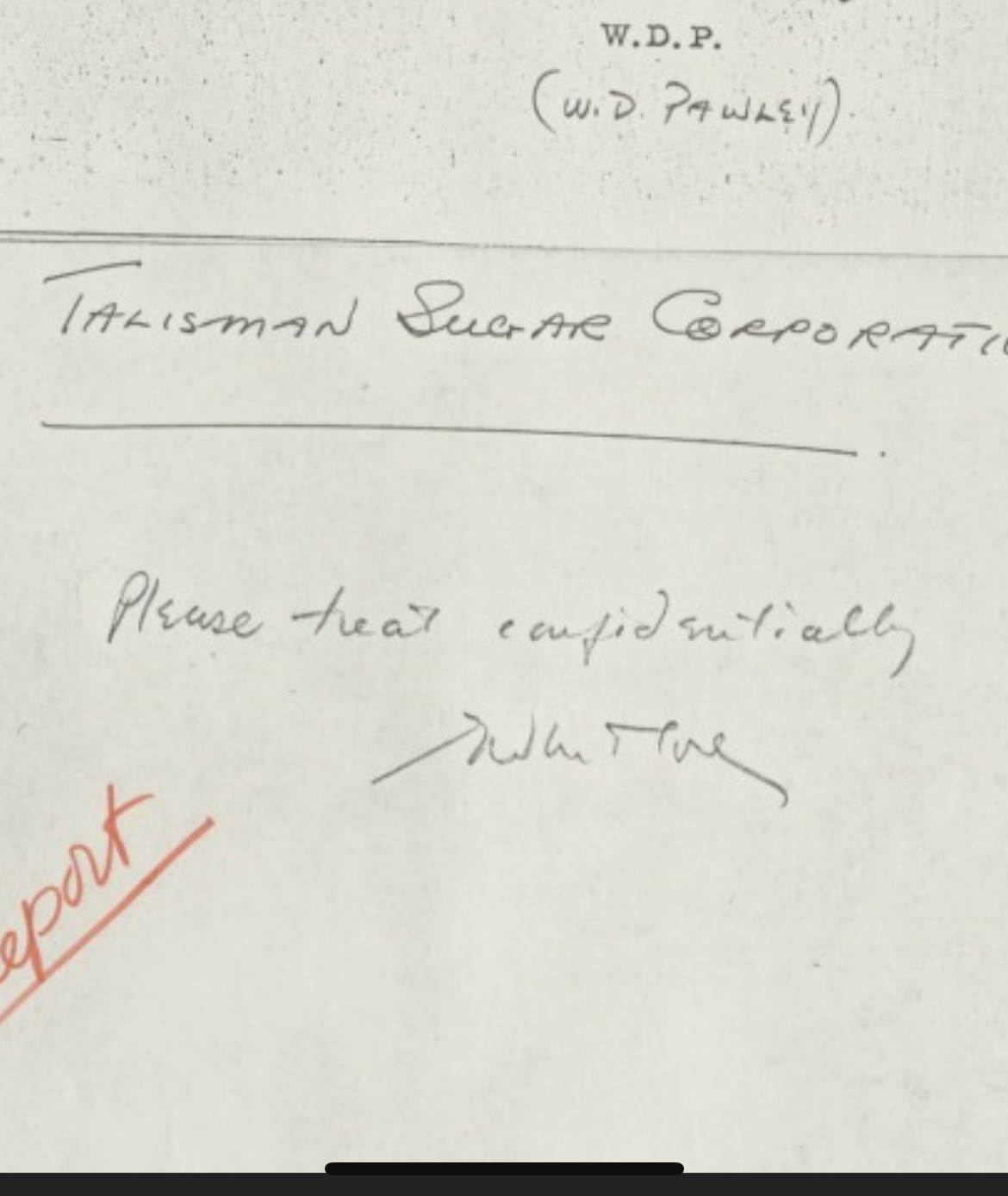36: Back to Business: Talisman Sugar
Pawley’s re-approval for covert activity in 1964 had a focus on the Miami business community. However, CIA documents about Pawley all but disappear for years. Even a review of his activities in the next decade assumed that his involvement with the agency ceased the same year his status was renewed: “Subject appears to have remained of interest to the WH Division and the DCI until as late as 1964.”1
In that year, Pawley became president and chairman of Talisman Sugar Corp. in Belle Glade, Florida, which ranked among the largest private properties in Central Florida. As his manager of Talisman, he appointed Mike Cervera, a participant in the Bay of Pigs invasion.2 Talisman already employed a number of other opponents of Castro. The FBI looked into employees Angelito Goitia on October 16, 1961, and Octavio Ledon Baradania on December 11, 1962.3
Prior to Pawley taking control of the company, the Chief of Station of JMWAVE received a dispatch in September 1962 regarding Dr. Fernando De La Riva’s plan to organize “50 Cubans to come to Brazil [where Pawley had been Ambassador] to engage in anti-Castro activities ... De La Riva is owner or manager of the Talisman Company in Miami and also owns a part of Usina Baixa Grande sugar refining company located in Campos, Rio de Janeiro state ... De La Riva’s empire is associated with the Ford family’s financial interests.”4
The following year, FBI Special Agent Leman L. Stafford, Jr. reported on December 30, 1963, an interview with Jesus Sanchez-Martinez, an electrician at Talisman Sugar Mill, who claimed to have been invited along on a fishing trip from Miami Marine Stadium by Orlando Ramirez and Evelio Alpizar. When they got out to sea headed toward Cuba, U.S. Customs intercepted the boat and found bombs onboard.5
Labels: Bay of Pigs, Belle Glade, Cesar Chavez, Edward Ball, Florida, Lake Okeechobee, Nixon, Pawley, Romney, strike, Sugar, Talisman


